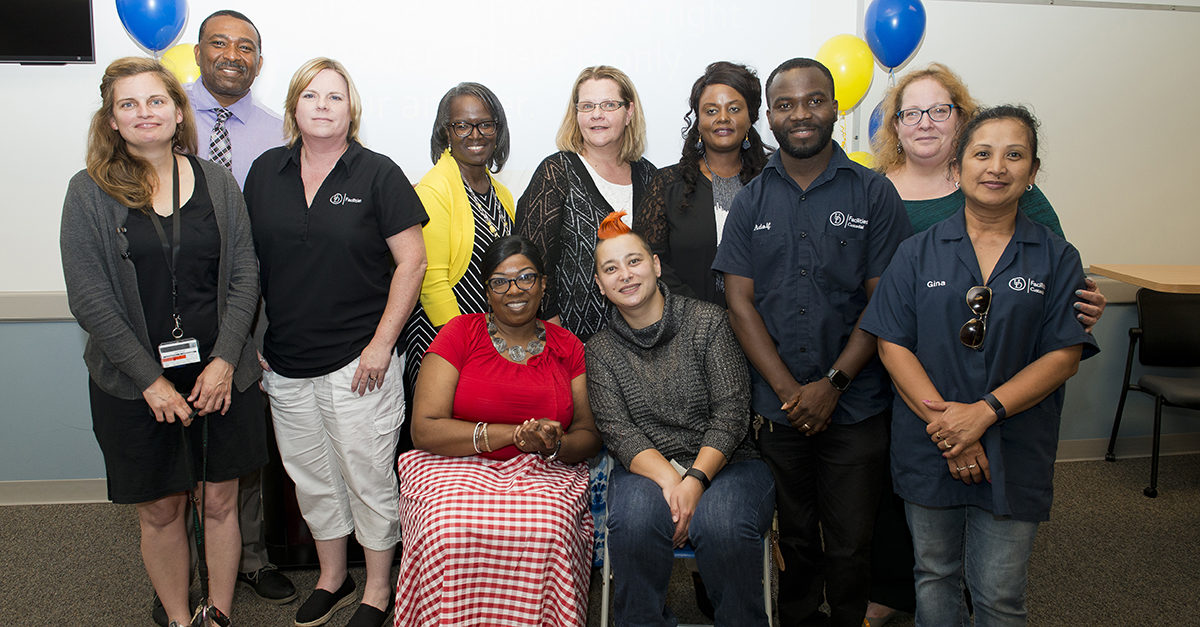Many custodians are motivated to advance in their careers, and those working at the University of Delaware in Newark, Delaware are no exception.
“I often hear our custodians say there is nowhere for us to grow, no one will hire us to do anything else. Everyone thinks we can only clean,” said Sylvester Johnson, director of Custodial and University Services at the university.
That is not the case at all. And to prove it, the university has created the Custodial Advancement Skills Education (CASE) program to help custodians earn managerial positions.
A CASE for educational resources
CASE gives university custodial staff the education and the confidence to draw from their experiences and seek advancement. Currently in its third year, the program had seven students the first year and five the second. Of the 12, six have received promotions, with three becoming custodial managers, one joining the HVAC team, and two rising to group leaders, according to Judy David, associate director of Custodial Services.
Program applicants submit essays, which David and Johnson read without knowing who wrote them to prevent bias. “Whoever has the best essays, that’s who we put into the class,” Johnson said.
The nine-month course goes from September through May, with students taking classes in a different topic each month: computer skills, labor relations, human resources, technical skills, management, public speaking, customer service, leadership, and interview training. University employees, in addition to Johnson and David, volunteer to teach the classes.
“We hear from the students the classes are much tougher than they thought they would be,” Sylvester said. “They thought they’d just sit in a room and hear us talk, but they have homework and projects.”
A CASE for support services
Each participant is assigned his or her own mentor from among the custodial management staff. They also meet monthly in a group for a team assignment, as well as individually with David and Johnson for a two-on-one session to review homework and
ask questions.
“We’ll pick their brains and ask them how they come up with ideas. We talk about the qualities they think are important for managers and qualities they want to see in their team members,” David said. “They learn that being the boss is not just getting to tell people what to do but being responsible for people doing their jobs safely and doing them well.”
The participants aren’t the only ones who have benefitted from CASE. “Judy and I have grown a lot by participating in this program,” said Johnson, adding, “Judy is paying it forward.”
“I first came to the University of Delaware as a student. I ran out of money and worked as a custodian at the school to raise money,” David said. “Then I became a supervisor after graduation.”
Like David, many CASE participants will go on to management jobs when the course ends with a graduation ceremony in June.
“The ceremony does get emotional,” David said. “The graduates appreciate that we believed enough in them to give them this opportunity.”
“The main reaction we hear is ‘You guys saw something in me that I did not see in myself,’” said Johnson.




